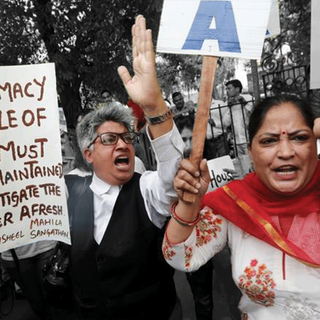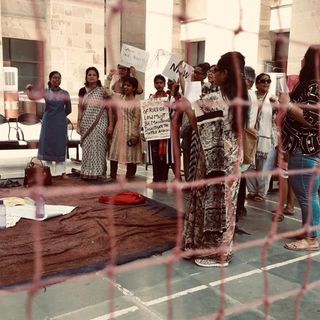
Mumbai’s #SupremeInjustice Protest Against SC’s CJI Decision: Photos
“The legal system has failed us terribly, and now there’s nowhere else to go but the streets.”
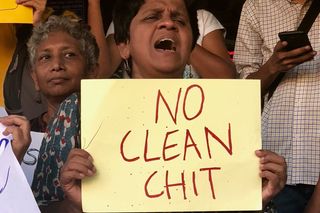
In cities across India, people are mobilizing to lend their voices to the woman who has accused the Chief Justice of India Ranjan Gogoi of sexual harassment, and who was denied due process in the subsequent internal investigation by the Supreme Court that cleared him. These protesters have been taking to the streets since May 7 to voice their disappointment, and iterate a set of demands that range from re-opening a fair investigation, to asking CJI Gogoi to step down.
On May 9, approximately 100 people gathered outside Dadar Station (East) in Mumbai, carrying signs that read “Supreme Injustice” and chanting on the station’s steps, amid members of the press frantically documenting their dissent and commuters looking on curiously.
“India was supposed to be a democratic country. Slowly, that idea is eroding. Even the highest court of law and justice has not ensured that democracy is respected. And therefore, we can’t and shouldn’t keep quiet; we need to mobilize, to send out a message that we’re watching and that the citizens are alert,” said Afreen Khan, a protester. Accompanying her was Devika Nair, who added, “At the very least, protests will ensure that the authorities know that the citizens will not take anything lying down, and that we’re aware that everything happening is wrong.”
Here are the scenes from the third day of the country’s #SupremeInjustice protests, in Mumbai:
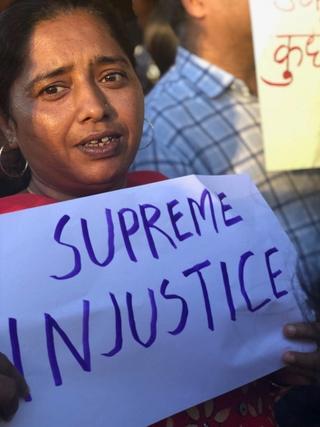
Image Credit: Rajvi Desai
“The judgement is not right. Whoever may commit the crime, there should be justice. We have faith in justice, but not the judiciary. If we can’t come together to fight against this abuse of power, then what is the point of all this?” asked Saira Banu, a women’s rights and education counselor.
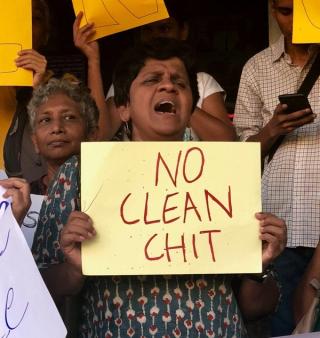
Image Credit: Rajvi Desai
“The judicial system should take responsibility and should be taking this seriously,” said Hasina Khan, who is a member of the Forum Against the Oppression of Women and a founding member of Bebaak Collective. “That’s why we’re here campaigning … because the woman has filed a case [against] the Chief Justice of India saying ‘I faced harassment,’ and the Chief Justice of India should [have] resigned at the time he got the letter from her. But he wasn’t resigning. He was sitting in [his] own case. He was judging in [his] own case. This is totally unjudicial and undemocratic.”
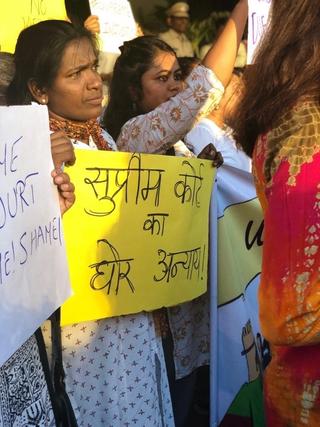
Image Credit: Rajvi Desai
“There should be justice. And the Supreme Court is the top justice institution. If you don’t expect that from there, where would we be?” said Joycia Thorat, an activist with the YWCA and the Indian Christian Women’s Centre. “It is wrong because first of all, when the complaint was made, they didn’t have the proper system. [The] rules were not followed in the Supreme Court itself. And they are leaving justice in a sealed envelope. It’s not the solution, you know? [They] didn’t follow the proper procedures. [We] look up to the Supreme Court. They need to be more transparent. And they need to follow the rules, if they themselves break the rule. It’s very ironic.”
“If we let it be, if don’t ask questions, it can lead to further erosion [of justice].”
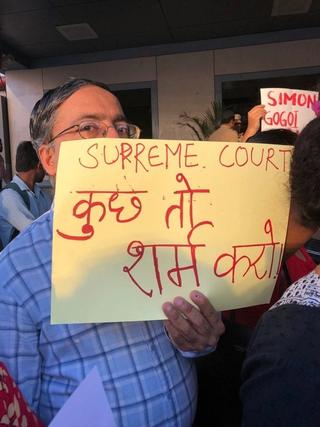
Image Credit: Rajvi Desai
“The due process of law, which has not been followed, by the highest court in the land, is what is being questioned. The voice, of a sizeable section of people, adds value and credibility. We hope that the system relooks,” said Harish Sadani, co-founder of Men Against Violence and Abuse (MAVA). “I believe that [the case] can be reheard; her plea can be done fresh. There have been precedents earlier.”
“In our fight for a gender-just society, men are not the enemy. Men’s attitudes [may be]. And those attitudes can be in any person. If that is so, then, those men who are gender sensitive, who are caring, they also need to be allies. It’s not just a question of only women. … As a man believing in the cause, [I’m protesting] for solidarity.”
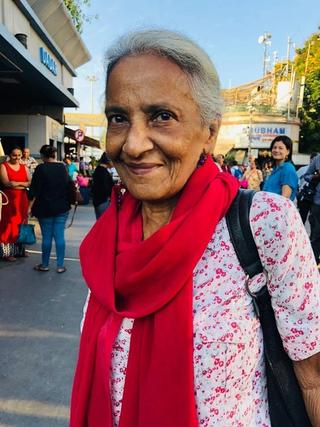
Image Credit: Rajvi Desai
“The survivors, the women who are sexually assaulted, are under a tremendous burden when they approach the court. It’s like being sexually assaulted all over again, having your dignity shred to pieces. As it is, women hesitate to go to court. In the current case, this lady did not approach the court until her family had been harassed. They had been followed around and then carted off to a police station. That is apart from losing their jobs. At that point, she has brought this out,” said Ammu Abraham, a women’s rights activist for more than 40 years. “The major demand [of the protest] is that the Supreme Court should stick to due process. They should stick to principles of natural justice, according to the law that covers sexual harassment in the workplace. They should employ an external committee [to investigate the issue]. But who do we make this demand of?”
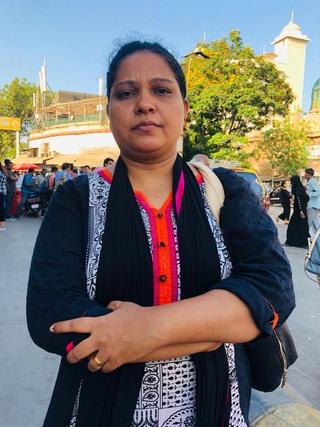
Image Credit: Rajvi Desai
“If we stay silent , then nothing will happen. When women don’t make noise, who is going to awaken the rest of the public?” asked Priti Shalom, a member of the Habitat and Wildlife Welfare Association. “Women are oppressed everywhere — at home, at work, in the streets. If injustice happens to one, it happens to everyone.”
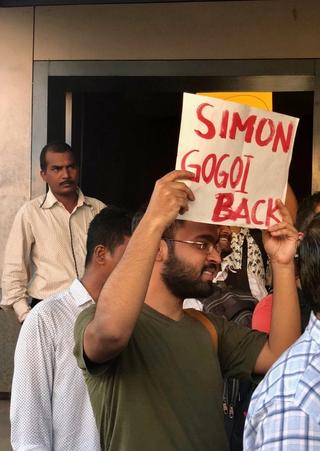
Image Credit: Rajvi Desai
“Despite being the highest court of justice, it can’t be beyond criticism. All of the country’s institutions are failing and so did the Supreme Court in the eyes of the public,” said Parikshit, a city planner. “It is important to protest because it’s our only chance at preserving sanity. The legal system has failed us terribly, and now there’s nowhere else to go but the streets.”
Related

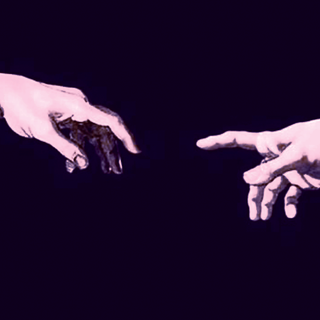
Are We Becoming Less Empathetic by Choice?
